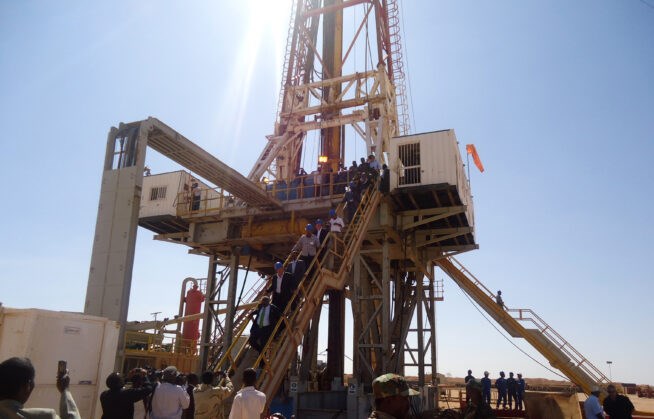
Wednesday May 4, 2022
By Abdulkadir Mohamed, Chairman of the Somali Petroleum Authority

Somalia has a tough legacy. Two decades of civil war and
ongoing natural disasters, including droughts and flooding, have triggered the
displacement of two million citizens. Almost 70% of Somali people live under
the international poverty line of $1.90 a day.
The country depends heavily on international humanitarian
aid and remittances from Somalis who work abroad. Agriculture, including
livestock and crops, still accounts for more than 70% of the economy.
The Somali government’s priority is to reduce the poverty
level and diversify the economy. Petroleum may play the key role in this
transformation as it did half a century ago in other countries, such as Norway
in Europe, Brunei in Asia, and the UAE. These countries previously relied on
traditional industries, which also encompassed fishery. However, after having
discovered oil, they now have some of the highest levels of income per head in
the world.
Prior to 1991, international oil and gas majors had
exploration agreements in Somalia, but they withdrew from the country because
of the civil war.
In 2012, however, the federal government was restored,
together with the federal member states, which led to the creation of all the
necessary legal framework to re-attract foreign investors. One example is the
landmark agreement to share any petroleum revenue between the central
government and the regions. In 2019, Exxon and Shell made $1.7m in legacy
payments for 1990-2008 owed under a previous concession agreement. This amount
was the first distribution between the central government and the regions under
the new Revenue Sharing Agreement.
In 2020, the government passed a petroleum law under which
the Somali Petroleum Authority was established to regulate the industry and
guide deals with international contractors. Consequently, the new licensing
round for seven blocks has the potential to generate much greater revenue for
Somalia and its regions. Geoseismic studies have shown that Somalia may have at
least 30 billion barrels of oil and gas reserves, but this will take time to
develop, as detailed exploration may take from three to five years, and only
afterwards can production begin.
Nevertheless, the good news is that the exploration and
production agreements are structured in such a way that they start to benefit
Somalia even before the commercial discovery of petroleum is made. In advance
of starting exploration, an international investor may pay a $1m signing bonus,
as well as a separate bonus payment. There may also be also a royalty, licence
fee and surface rent as well as other taxes to be paid along the way.
All these proceeds are shared between the central government
and the regions in agreed proportions. Ultimately, once the international
investor recoups their expenses, they start sharing the petroleum revenue under
the Revenue Sharing Agreement with the people of Somalia.
Healthcare, water
Proceeds from petroleum can be invested into the building of
infrastructure in Somalia; developing a viable water supply system and an
improved healthcare service; as well as building schools to increase the level
of literacy in the country. International petroleum investors will also be
bound by their agreements to hire and train local personnel and use
Somalia-made goods in procurement where possible. Somalia currently has to pay
high prices for oil imports from the Middle East, but its own oil production
will see reduced energy costs and make public transportation more affordable.
Hydrocarbon production can foster economic and social
development in Somalia by providing access to affordable energy, opportunities
for decent employment, business and skills development, increased fiscal
revenues and improved infrastructure.
Even though developed countries have become more focused on
renewable energy, East Africa (as a developing region) needs to pass the first
stage of industrialisation. Petroleum can be a real game-changer for Somalia.
Industry analysts argue that some countries experience the
phenomenon of the “oil curse” when petroleum revenues are poorly managed and
abused by politicians, which curbs the development of other industries.
In contrast, through the Somali Petroleum Authority, Somalia
has a well-designed system in place for overseeing the petroleum revenues and
sharing them between federal, regional, and local populations to the benefit of
all Somalis.